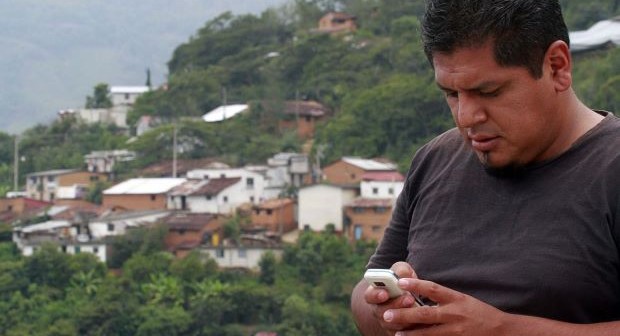Cheaper technology has allowed a remote village in Oaxaca, Mexico to create and operate their own DIY cellular networks. This follows a general trend of communication improvements across the BRIC nations.
Around the world, there are some 700 million people without access to a cellular network. A cellphone is practically useless without a network and the system is generally controlled by a company that aims to make a profit. Commercial cellphone operators typically do not set up towers near villages that are considered to be too small to bother, or with fewer than 10,000 possible costumers. This was the case for Talea de Castro, a remote village in southern Oaxaca.
The locals of Talea appealed to the main networks in Mexico to install a mobile phone antenna in their village, but to no avail. Therefore, residents would have to trek anywhere from 20 minutes to two hours away just to make a cellphone call with minimal signal and spotty service.
Rhizomatica, a nonprofit organization in Mexico, has helped the town of Talea de Castro and 15 other remote villages to install and operate their own cellphone networks. The organization is made up of a team of computer hackers, programmers and local residents.
Peter Bloom, Rhizomatica’s founder, believes that communication is a fundamental human right. Bloom told NPR that the organization is not doing the work for the community, but instead helping the network to get set up so that the community can operate it for themselves.
DIY Cell networks in these villages need to be affordable, because remote areas are usually low-income zones as well. Thanks to cheaper technology and the setup being operated as a local business, the networks are typically inexpensive. Subscribers of the community network pay just a few cents a minute for long distance calls and texts within the village are free.
DIY Cellular networks also allow for an economic boost.
A report by the industry group GSM Alliance estimated that doubling national cellphone penetration adds half a point of GDP growth. Individuals in the community are also benefitting financially. One local taxi driver’s income has increased by a third due to the ease of contacting his service by cellphone.
If you like this article you may be interested in “The Peace Bus: Meet The Unlikely Team Saving Rural Mexico”.





